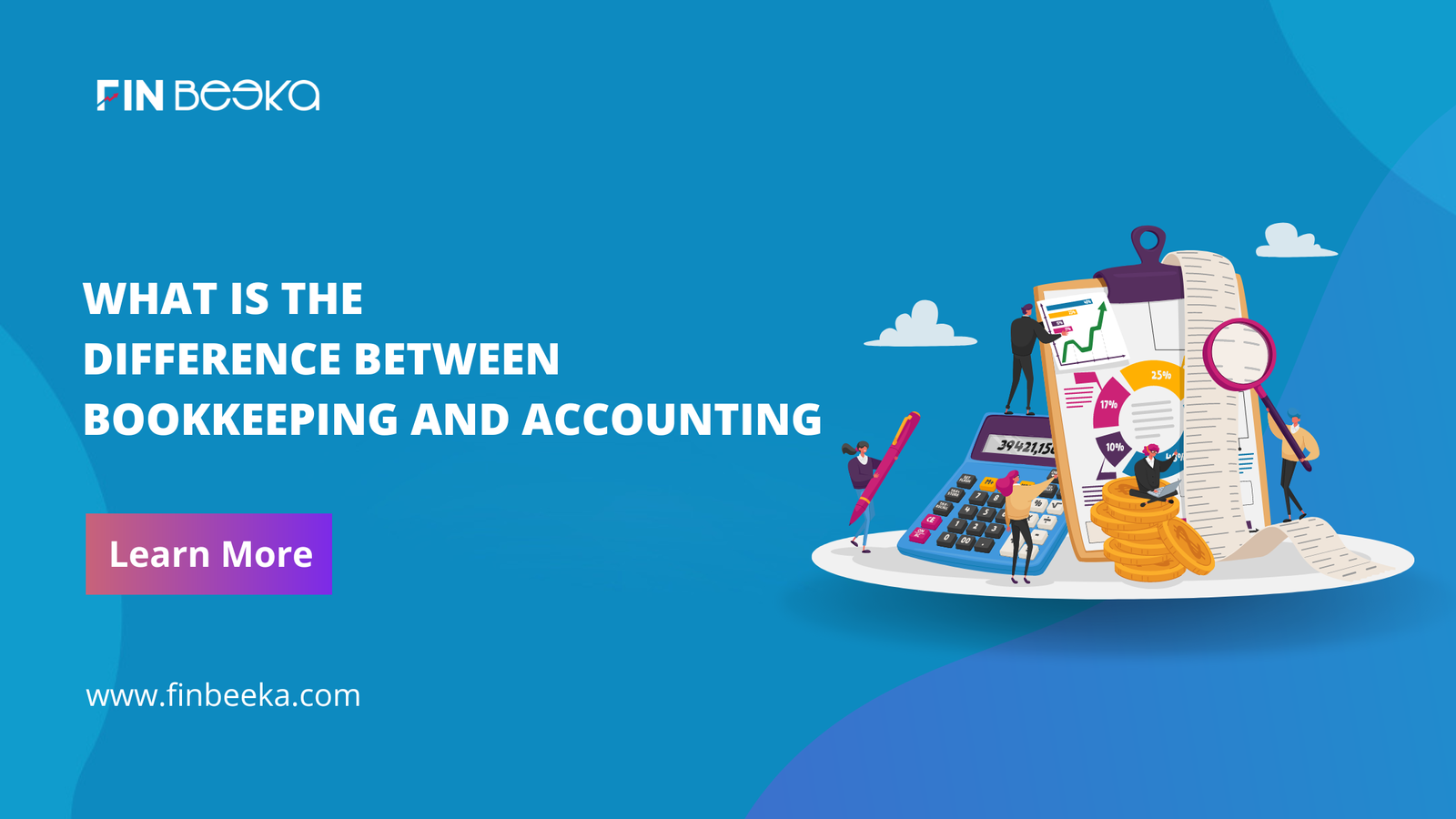AKG Rd, Edappally
Monday to Saturday

What is the difference between Bookkeeping and Accounting
Bookkeeping and accounting are closely related concepts that both deal with financial information and record-keeping for businesses, but they serve distinct roles in the financial management process. Here’s the difference between bookkeeping and accounting:
Bookkeeping:
Bookkeeping is the process of recording daily financial transactions of a business. It involves systematically recording all financial transactions, such as sales, purchases, expenses, and payments, in a chronological order. The primary goal of bookkeeping is to maintain accurate and organized records of these transactions.
Key tasks and responsibilities of bookkeeping include:
1.Recording Transactions: Bookkeepers record financial transactions in journals, ledgers, and accounting software.
2.Classifying Transactions: Transactions are categorized into various accounts, such as assets, liabilities, revenue, and expenses.
3.Maintaining Ledgers: Bookkeepers create and maintain general ledger accounts to track individual transactions.
4.Reconciling Bank Statements: Bookkeepers ensure that the records match the actual bank statements by reconciling discrepancies.
5.Producing Financial Statements: Bookkeeping data is used to prepare basic financial statements like the balance sheet and income statement.
In essence, bookkeeping focuses on the accurate recording and organization of financial data. It provides the foundational data that accountants use for analysis and reporting.
Accounting:
Accounting is a broader and more analytical process that involves interpreting, analyzing, summarizing, and reporting financial data to provide insights into the financial health of a business. Accountants use the information generated by bookkeepers to analyze the financial performance of a business and provide management with valuable information for decision-making.
Key tasks and responsibilities of accounting include:
1.Financial Analysis: Accountants analyze financial data to interpret trends, ratios, and key performance indicators.
2.Financial Reporting: Accountants prepare financial statements like balance sheets, income statements, and cash flow statements.
3.Budgeting and Forecasting: Accountants assist in creating budgets and financial forecasts for the business.
4.Financial Strategy: Accountants provide strategic financial advice, tax planning, and recommendations for improving profitability.
5.Auditing and Compliance: Accountants ensure compliance with tax regulations and accounting standards. They may also assist with audits.
In summary, while bookkeeping focuses on recording and organizing financial transactions, accounting involves a deeper analysis of the financial data to provide insights and reports that guide business decisions. Bookkeeping is more concerned with the “how” of financial transactions, while accounting delves into the “why” and “what” behind those transactions. Both functions are critical for maintaining accurate financial records and making informed business decisions.
